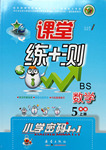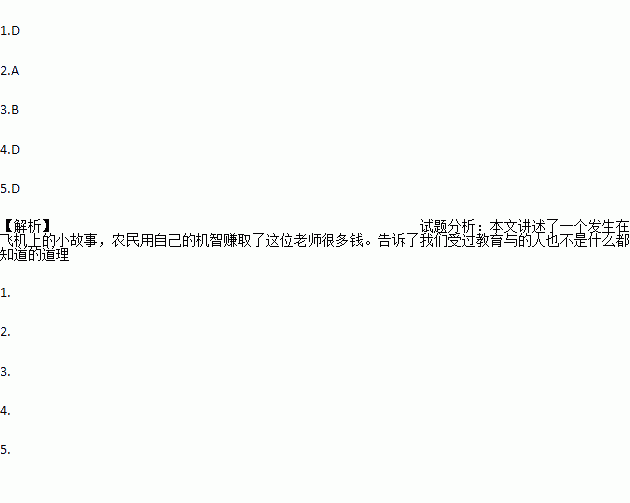题目内容
Two men were sitting together in a plane. They were on a long journey. One of the men was a businessman. The other was a farmer. They sat without talking for a while, then the farmer said, “Let’s do something to pass the time.”
“What do you want to do?” the businessman asked. “We can ask each other riddles.” The farmer said, “You start.” “Let’s make the rules first,” the businessman said. “That’s not fair. You are a businessman with much knowledge. You know more things than I do. I am just a farmer.”
“That’s true.” The businessman said. “What do you want we should do?” “If you don’t know the answer to a riddle, you pay me $100. And if I don’t know the answer, I’ll pay you $50.” The farmer said. The businessman thought about this, then he said, “OK. That’s fair. Who will go first?”
“I will,” The farmer said. “Here is my riddle. What has three legs when it walks, but only two legs when it flies?” The business man repeated the riddle, “What has three legs when it walks, but only two legs when it flies? Mm, that’s a good one. I’m afraid I don’t know the answer.” He gave the farmer $100, then said, “Tell me the answer. What has three legs when it walks, but only two legs when it flies?” “I don’t know.” The farmer said and gave him $50.
1.The story happened ____________.
A. on a farm B. in a shop
C. before a long plane journey D. between two passengers
2.What does the word “riddle” mean in this story?
A. A difficult question to find the answer to.
B. Something to help to make rules.
C. Something to win money.
D. a kind of game in doing business.
3.Why did the businessman agree to give more money if he lost?
A. He made much more money than the farmer.
B. He thought he knew more than the farmer.
C. He was interested in making riddles.
D. He was better at playing riddle games.
4.The farmer _________.
A. enjoyed himself on his long journey.
B. didn’t want to pay even one dollar
C. spent all his money on the plane ticket.
D. won fifty dollars by playing the riddle game
5.Which of the following is NOT true?
A. The two men made rules for their riddle.
B. The farmer was much cleverer than the businessman.
C. The two men made their riddle game more interesting by paying it for money.
D. The businessman knew the answer to his riddle.
 红果子三级测试卷系列答案
红果子三级测试卷系列答案 课堂练加测系列答案
课堂练加测系列答案
